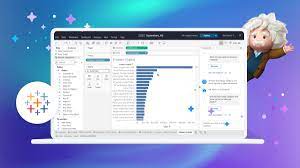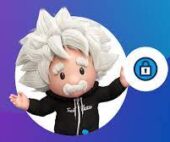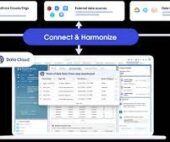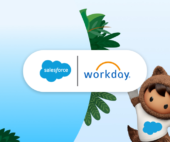Tableau has dedicated over two decades to empowering individuals to visualize and comprehend their data. This mission, driven by data analysts, continues to thrive. Data analysts serve as the cornerstone of organizations fostering a data-centric culture. They capture business needs, prepare data, and craft data content for end-users.
Einstein Discovery insights seamlessly integrate into the Tableau workflow, ensuring uninterrupted analysis. The benefits of leveraging Einstein Discovery are manifold:
- User-Friendly Interface: Einstein Discovery offers an intuitive interface for data analysis.
- Automated Insights: Easily shareable insights automate the dissemination of valuable information to stakeholders.
- Enhanced Accuracy: Einstein Discovery improves the accuracy of data analysis.
- Time Efficiency: Compared to manual analysis, Einstein Discovery saves time significantly.
Tableau Einstein represents a groundbreaking advancement in AI-driven data analytics. Einstein Copilot for Tableau, currently in beta for Tableau customers, democratizes AI in data analytics. It collaborates with analysts throughout the analytical process, from data preparation to visualization, reducing entry barriers and enhancing user experience.

Einstein Copilot integrates seamlessly into the Tableau environment, serving as an intelligent assistant. It guides users through the creation process, ensuring accuracy and adherence to best practices. With Einstein Copilot, users confidently explore data, identify trends, and communicate findings effectively.
The features of Einstein Copilot enhance the data analytics experience and empower users to unleash the full potential of their data. These features include faster insights through recommended questions, streamlined data exploration, improved visualization quality, and guided calculation creation.
Einstein Copilot’s development involved overcoming several challenges. These challenges included accurately interpreting user questions, enhancing data intelligence, and automating visualization generation. The team addressed these challenges through continuous refinement of analytical data generation algorithms, leveraging Tableau Public’s vast dataset, and balancing accuracy, speed, and creativity in AI responses.
Continuous improvement remains a key focus for the Einstein Copilot team. Through platforms like Zeus, the team systematically enhances engineering, intent detection, and knowledge generation. This iterative process ensures ongoing enhancements to Einstein Copilot’s capabilities, providing users with an increasingly seamless and insightful analytical experience.
Einstein Discovery insights are integrated into your Tableau workflow, so you never need to disrupt your analysis.
Some of the benefits of using Einstein Discovery include:
- Easy-to-use interface for data analysis.
- Automated insights that can be easily shared with stakeholders.
- Increased accuracy in data analysis.
- Time saving, especially compared to manual data analysis.
Data analysis and data-driven decision-making have been part of the vocabulary in organizations over the years. And, while data analysis is one of the most in-demand tech skills sought by employers today, not everyone in an organization has “analyst” in their job title—myself included. Yet, so many of us use data daily to make informed decisions.
The rise of generative AI presents a significant opportunity for us to bring transformative benefits to analytics. Businesses are eager to embrace generative AI because it can help save time, provide faster insights, and empower analysts to be even more productive with an AI assistant—freeing analysts to focus on delivering high-quality, data-driven insights.
But before any of this can happen, a lot goes on behind the scenes. That’s where Einstein Copilot for Tableau comes in.
Einstein Copilot for Tableau, now available for Tableau customers to try in beta, brings the power of AI to data analytics, reducing the barrier to entry and working alongside the analyst—from data preparation to visualization. Whether you’re an experienced data analyst or just starting your journey in data exploration, Einstein Copilot for Tableau becomes your trusted companion, empowering you to unlock insights and make informed decisions with confidence.
Einstein Copilot for Tableau offers a range of features that enhance the data analytics experience and empower anyone to unlock the full potential of their data. Look for these features in the coming release, and even more as we continue to build.
Faster insights with recommended questions
When you are getting started in analytics—whether for work, learning, or just for fun—a blank canvas can be intimidating. Where do you even begin? Using Einstein to suggest questions you can ask of a specific datasource lightens that lift so you can quickly move from connecting to data to finding insights.
Einstein Copilot for Tableau does a quick index across your connected datasource to create a summary context of the datasource. This summary is used to generate a few questions the dataset can answer. For example, using a dataset like Tableau’s Superstore practice dataset, Einstein Copilot for Tableau suggests “Are there any patterns over time for sales across product categories?” In one click a line chart is created. Since this is all happening in the authoring experience, users familiar with Tableau’s drag-and-drop interface can adjust anything displayed before saving and moving on to the next question. Combining analyzing data with learning by doing.
With recommended questions, anyone can quickly uplevel their analytics skills.
What is Einstein Copilot for Tableau?
Using generative AI and statistical analysis, Einstein Copilot for Tableau is able to understand the context of your data to create and suggest relevant business questions to help kickstart your analysis. A smart, conversational assistant for Tableau users, Einstein Copilot for Tableau automates data curation—the organization and integration of data collected from various sources—by generating calculations and metadata descriptions.
Einstein Copilot for Tableau can fill data gaps and enhance analysis by creating synthetic datasets where real data is limited. Einstein Copilot helps you anticipate outcomes with predictive analytics that simulate diverse scenarios and uncover hidden correlations. Additionally, generative models can bolster data privacy by producing non-traceable data for analysis.
Accelerate insights from data with ease
Tableau has thousands of features—and with Einstein Copilot’s in-product assistance, you ask questions using natural language, and from data prep and writing calculations to formatting worksheets and dashboards using your company brand guidelines, Einstein Copilot automates many time-consuming, repetitive tasks—increasing analyst productivity and speeding time-to-insights.
Jumpstart data exploration
Einstein Copilot for Tableau is a great tool for both data-savvy end users and data professionals. With the help of Einstein Copilot, you can ask more in-depth questions about the data insights without having to know all of the technical aspects of Tableau.
In the worksheet, a set of recommended questions based on the data source’s metadata makes it easy for users to start analyzing their data. Einstein Copilot’s step-by-step guidance also helps new data professionals learn how to use Tableau effectively—with an opportunity for both novice and experienced users to increase their learn by doing.
Improve viz and dashboard quality through prescriptive guidance
With Einstein Copilot in Tableau, you can leverage built-in visual best practice guidance, allowing you to format visualizations using simple natural language prompts and reduce complex and time-consuming tasks.
One of the most critical aspects of Einstein Copilot for Tableau—a human is always involved in the process. This ensures that any proposed responses are thoroughly checked before they are accepted. Whether you’re exploring data or creating dashboards, you can be confident that assistance is available every step of the way.
Because Einstein Copilot can generate calculations in a matter of seconds, it’s easier than ever to perform complex analyses and add fields to your data source—on your own or on the fly. From suggesting prompts relevant to your data and using best practices to create dashboards to exploring data and uncovering insights faster, Einstein Copilot in Tableau is the generative AI-powered assistant that opens up a world of possibilities for working with data.
Guided calculation creation
Learning to write calculations in a new language can be complex. Einstein Copilot for Tableau guides you in creating calculations through natural language prompts. So whether you are creating a calculation for a new business KPI, or to keep track of your favorite sports team, Einstein is by your side with a calculation and an explanation, in Tableau Prep and when authoring visualizations.
Asking Einstein to “create an indicator for songs that are a remix” on my playlist data returns a calculation searching the Track Name field without explicitly asking for that field. Einstein knows from the initial indexing the work ‘remix’ is commonly found in the Track Name field. The calculation also comes with a helpful explanation so you know how the calculation will behave before accepting it. Einstein Copilot for Tableau understands aggregations, string calculations, table calculations, LODs, it can even write regex!
Conversational data exploration
It’s common for the answer to your first question to provoke follow up questions that enrich your understanding of the data. Einstein Copilot for Tableau enables you to iterate and refine your data exploration. You can search for an additional insight without losing the context of your previous question. As you learn, you’ll see how Tableau organizes measures and dimensions, familiarizing yourself with where to drag-and-drop to get the exact viz that you want. At any point you can save your work and create a new sheet to answer a new question.
Einstein Copilot for Tableau can handle filtering, changing the viz type, and even misspellings. Yes, Einstein uses fuzzy logic to catch misspelled words, and semantic search for synonyms. So if you start with product category, your next question could be to “filter on technology and show sales by product”. Einstein Copilot for Tableau places the filter and swaps out the dimension. Watching this in action can help to teach more people across your organization how to self-serve with data exploration.
Einstein Copilot for Tableau can augment your analytics experience whether you are starting with a blank canvas, or editing an existing dashboard.
Einstein Copilot for Tableau is built with privacy, security, and accuracy top of mind. Future updates will include Pulse Metrics generation, Slack integration for sharing insights with others, and adding more context to insights before sharing them.
Einstein Copilot in Tableau will be generally available in Summer ‘24 with Tableau 2024.2. Sign up for the Einstein Copilot for Tableau beta program,
In Salesforce Engineering tools, “Engineering Energizers” Q&A series, we explore the extraordinary journeys of engineering leaders who have achieved success in their specific domains. Today, we meet John He, Vice President of Software Engineering, who leads the development of Einstein Copilot for Tableau — an innovative tool that redefines how users interact with their data, making complex analysis simpler and more intuitive than ever before.
Join John’s AI team as they revolutionize this tool, overcome infrastructure complexities, and take data analysis to the next level.
What is your AI team’s mission?
Our mission is to revolutionize the data analysis process for Tableau customers. We have developed an AI-driven conversational interface that makes analytics tools accessible to all, eliminating the need for extensive learning or prior knowledge of analytics tools.
With Einstein Copilot for Tableau, users can simply ask questions about their datasets and receive quick insights to understand and take action on their data.
Our primary focus is to assist Tableau customers with analytics tasks, such as discovering opportunities and researching the reasons behind events or trends. For instance, sales teams can leverage Einstein Copilot for Tableau to analyze data, generate analytics, identify opportunities, and gain a deeper understanding of consumer behavior. Armed with these invaluable insights, businesses can make informed decisions to drive growth and success.
What complexities were involved in building the AI infrastructure for Einstein Copilot for Tableau?
One of the primary challenges was prioritizing the development of a benchmarking system. This system collects data from various sources and plays a crucial role in evaluating the effectiveness of question and answer interactions. To optimize the data processing workflow, the team invested significant resources in developing telemetry and data pipelines.
Enhancing the intelligence capabilities of Einstein Copilot for Tableau was another key focus. This involved:
- Integrating both standard and customized models into the production environment. The Salesforce Einstein Trust Layer was utilized to protect the request and response. To ensure the suitability of these models, the team relied on the benchmarking system to evaluate model performance and make informed decisions.
- Grounding with authorized customer data. We intelligently sent minimal data to LLMs while maintaining the top-level security. The metadata are initlally used by field identification, and the algorithm may further look into the value of dimensions so as it could make the context more precisely
- Generating code from enriched context, with Tableau best practices in mind. The code included the calculation or notional spec and were converted to visualization by the Viz platform. The team aimed to ensure that customers could benefit from the best available options and that the intelligence provided was transparent. This meant avoiding a one-size-fits-all approach and instead tailoring the models to suit each customer’s individual needs.
What obstacles does your team face in terms of accuracy and efficiency while developing Einstein Copilot for Tableau?
First, we face the challenge of accurately interpreting user questions and translating them into the appropriate code in Tableau’s programming languages include VizQL and Notional Spec. While we have a working model for this, we are continuously striving to improve its accuracy and reduce any hallucinations in the translation.
Additionally, we are tackling the problem of knowledge generation in analytics. This involves enhancing prerequisite knowledge, which includes addressing data quality, reliability, accuracy, data source updates, data coverage, and potential limitations or biases. We also focus on generating descriptive knowledge that provides accurate and informative summaries specific to different domains.
Lastly, we are working on automating visualization generation based on user data and queries, like Sora in OpenAI, which can generate video with a few prompts. To achieve this, we are developing a supervised fine-tune LLM model that can efficiently transform data into multi-modal answerers with visualization. This significantly reduces the time and effort required for analysis. The resulting visualizations can be rendered in Tableau or presented in Copilot chat box, providing users with quick and insightful visual representations of their data.
What were the key technical challenges for improving the AI and core capabilities of Einstein Copilot for Tableau?
One of the primary challenges was finding more data to train and improve the intelligence of the system. To address this, the team shifted its focus to:
- Synthesized data. We are continuously refining our analytical data generation algorithms to enhance the quality of the model and streamline the process.
- Tableau Public. A community-driven platform that hosts millions of reports, visualizations and data sources. This platform attracts a large user base and collects a diverse range of data. By providing free access to the technology, the Tableau community can also contribute their data, further enriching the dataset.
Additionally, the team needed to balance Copilot’s accuracy, speed and creativity, which required careful tuning. The team developed a novel analytical specification that enhances the speed of interpreting user intent for Tableau system capabilities while maintaining accuracy. To balance accuracy and creativity in Einstein Copilot for Tableau, the team leveraged the temperature concept from LLMs. By adjusting the temperature, which represents the level of creativity in AI responses, they can control the accuracy of the answers provided. This ensures that the responses are generated from factual information and meet user expectations. Keeping the temperature lower reduces the risk of hallucination and provides users with reliable and accurate insights.
Continuous improvement was another crucial aspect the team prioritized. To enhance the user experience of Einstein Copilot for Tableau, an experimental platform called Zeus was utilized. This platform facilitates systematic engineering, intent detection, and knowledge generation, enabling the team to identify areas for improvement and continuously enhance the capabilities of Copilot.











